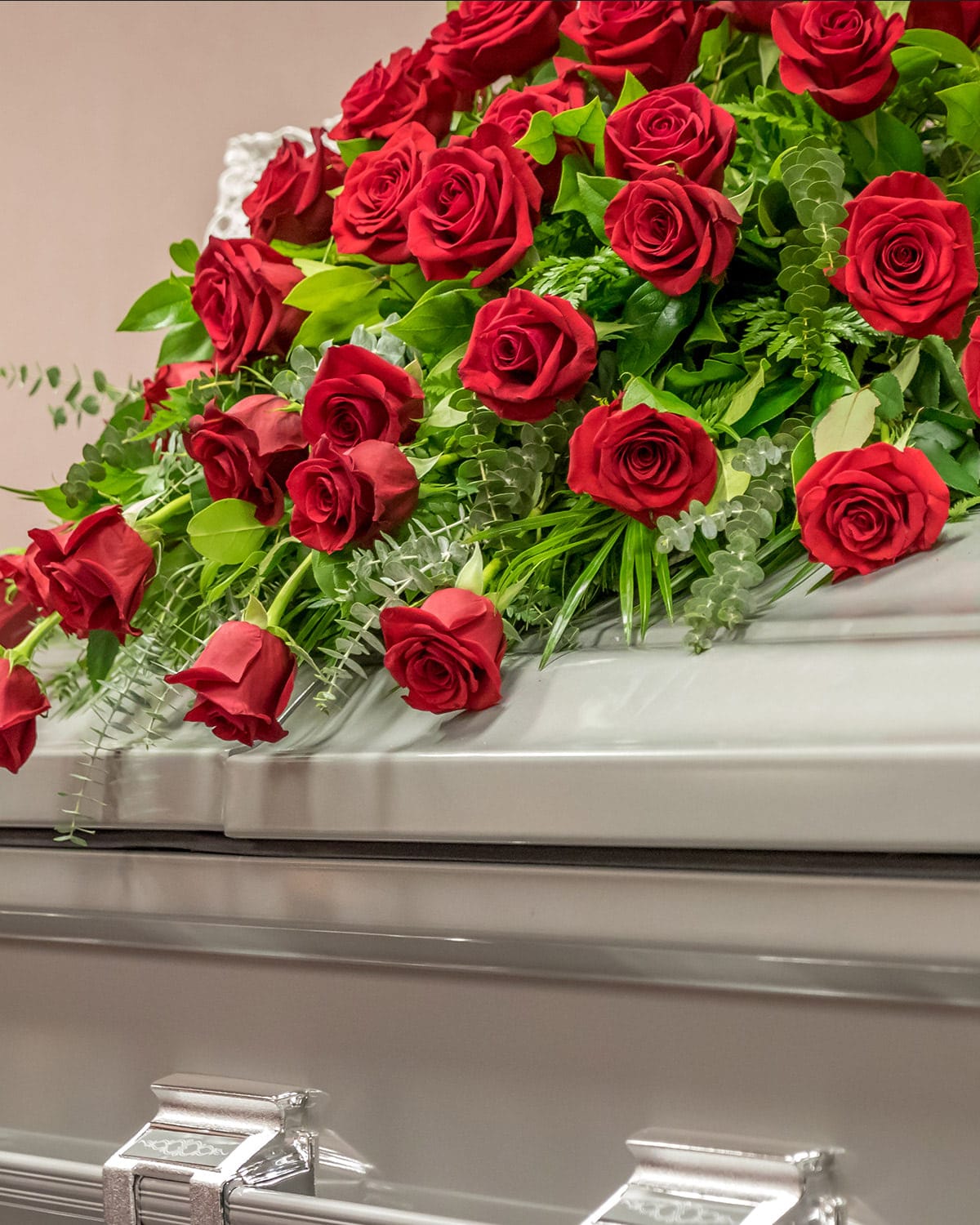
When a death occurs, knowing how to comfort those left behind is not easy. As difficult as it is to know what to say, sending flowers can be even more perplexing. What is appropriate to memorialize relatives or people to whom you are not related? How about those you've not personally met, such as the spouse of a coworker?
Societal norms and traditions evolve over time. Along with shifting rules of etiquette, the sheer availability of flowers has changed and broadened. In addition to traditional designs, mourners now appreciate the freedom to request arrangements that are less common, perhaps more dramatic or personalized.
Another marked change is the rising number of cremations. Often, when cremation has taken place, a decision is made to forego formal memorial services. Perhaps a small gathering at the home of the bereaved will be planned instead, or there may be none at all. In any case, the absence of a funeral service should not be viewed as a reason to neglect a show of sympathy.
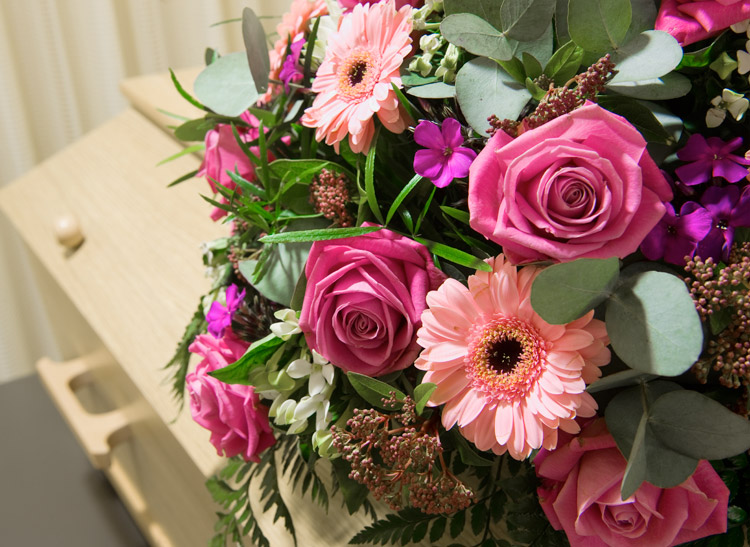
Which Type of Arrangement Should I Choose?
Yes, there are rules of etiquette that dictate what types of floral arrangements are appropriate, based mostly on the sender's relationship with the deceased.
Anyone may send floral baskets or living plants. They are especially appropriate when the sender had a closer relationship to the bereaved than to the deceased. These baskets are generally of an all-occasion type, and are sent to the bereaved's home or workplace. Sympathy baskets, sent to the funeral home or the bereaved's home, are appropriate when sent by family, or those who had a deeper, or formal relationship with the deceased.
Floral wreaths, crosses, and sprays, available in many sizes, are appropriate when sent by anyone personally acquainted with the deceased or the family of the deceased. The exception to this would be associations that would like to honor the deceased for service during their lifetime. Younger children or grandchildren of the deceased, may honor them with lid arrangements. These, as well as casket covers and matching Urn arrangements, are traditionally reserved for family members. Should you wish to send an arrangement of this type, be sure to ask the family first.
Floral arrangements known as tributes are generally chosen by good friends or family members. You may memorialize someone by choosing a special design based on an aspect of their personality, their occupation, an association membership, or a hobby. Other tribute arrangements are available as well.
What is Appropriate to Send for a Cremation?
In the case of cremation, much depends on whether a funeral service is planned. If so, you may choose a tribute arrangement or any other type of arrangement not reserved for family members. If there will be a memorial service at the bereaved's home or no services, it is more appropriate to send an all-occasion type floral arrangement.
Is it Okay to Send Brightly Colored Flowers for a Funeral?
Certainly. Bright flowers can reflect the energetic personality of the deceased. They may be chosen to send a message about how you felt about that person - that, in life, they gladdened your heart and made you feel happy to have known them. Bright colors or bright monotone arrangements tend to stand out in the soft lighting of funeral homes.
Can I Send Flowers in a Glass Vase to a Funeral Home?
From an etiquette standpoint, this is absolutely acceptable. However, some funeral homes have rules about certain types of arrangements. If the arrangement you would like to send is anything outside the realm of traditional sympathy floral designs, you should consult the funeral home concerning their policy on such arrangements before ordering.
May I Send a Plant to a Funeral Home?
Yes, it is appropriate to send a green or flowering plant. Some funeral homes will deliver plants or flowers to the bereaved's home after the memorial services, if specified. Others may require that the family take them home with them. Phoenix Flower Shops offers it's services to move large amounts of flowers and plants for the family, if the family has used us for the service.
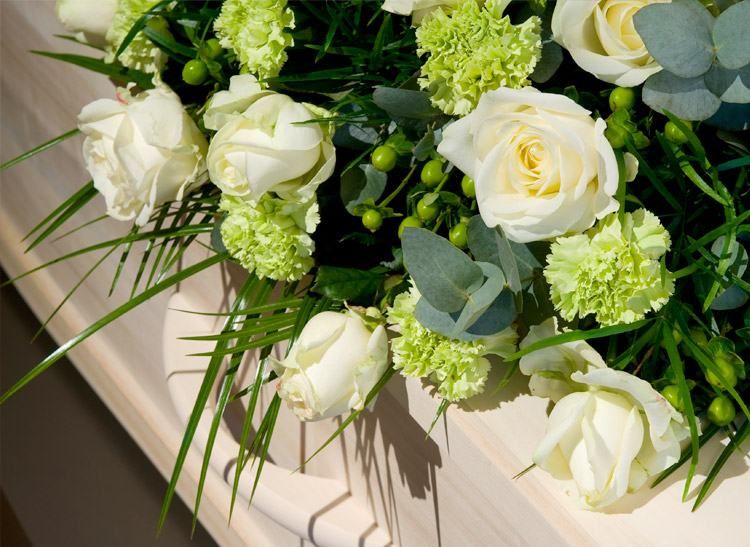
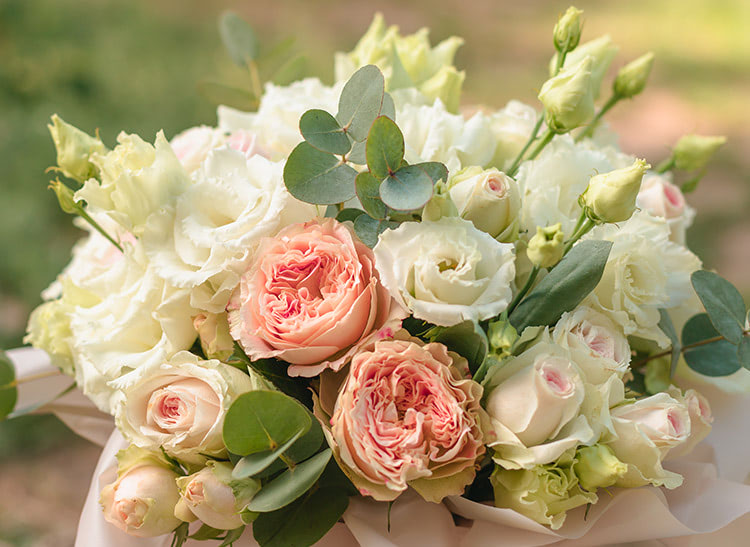
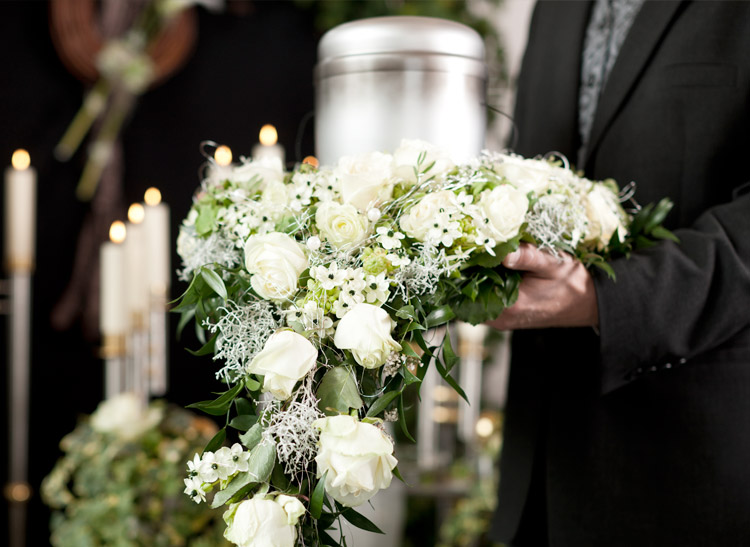
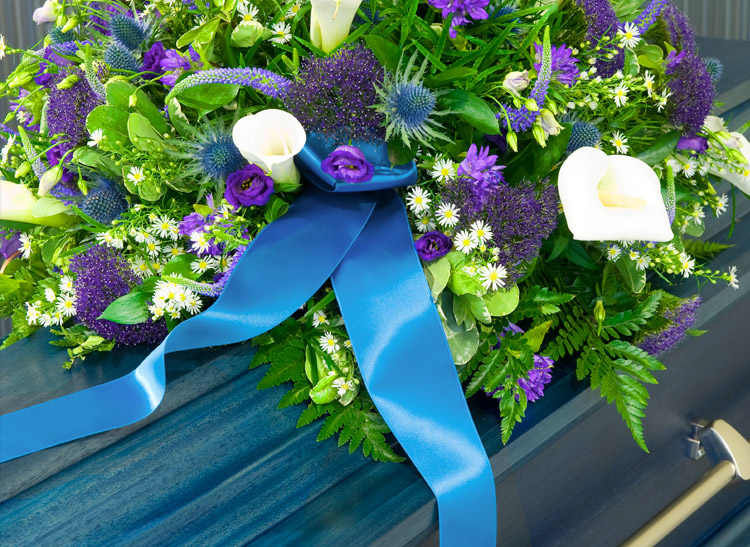
Is it Acceptable to Send Flowers if the Death Notice Requests a Charitable Donation, "In Lieu of Flowers"?
Yes. Flowers at the funeral service not only add warmth and life to a somber event, they are a tangible tribute. They let the bereaved know, visibly, how much their loved one touched the lives of others. Just as we would never choose not to send sympathy cards, offer assistance, or donate food when asked to make a financial contribution, flowers are always appropriate and appreciated.
Are There Special Considerations When Sending Flowers as a Group?
Sending flowers as a group is a very good idea. When mourners pool their financial resources for one arrangement, it can be that much more special, and will have much greater impact. Gift cards are large enough to hold a number of names. However, if the list of names is very long, you may choose to identify yourselves by family, group, or department if coworkers. In either case, you should supply one contact name and address so that the family can send thanks.
I've Missed the Funeral! Is it Still Okay to Send Flowers to the Family's Home?
Absolutely. Floral honors are always appreciated, no matter when they are received. Even if you will also be attending the funeral, sending flowers to the bereaved's home is a wonderful gesture. Some people choose to send flowers a week or so after the funeral, after the necessary chaos of a death. It has actually become popular to send flowers to the home over a period of time after the funeral to remind the bereaved that we are still thinking of them and their loss.



